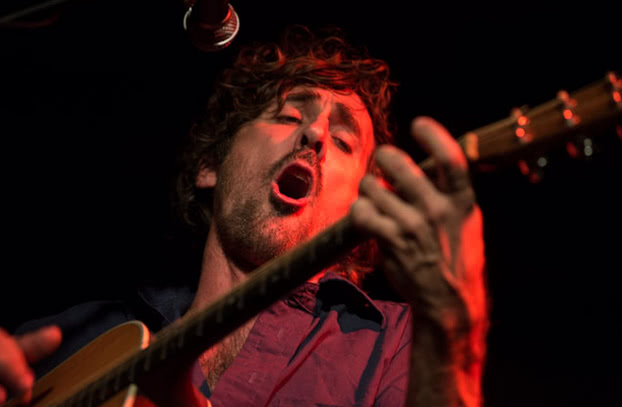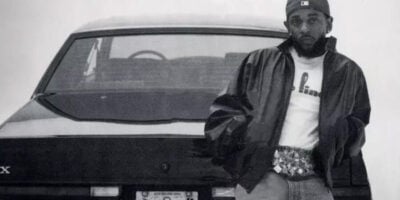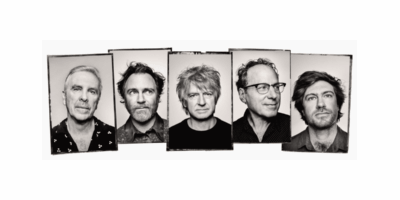A Gareth Liddiard solo show is always a rare and special occasion.
The Drones frontman released his solitary solo album in 2010, but has only played a handful of shows in the time since – until now. It’s a testament to the musician’s talent that every one of the five shows during his residency at the Workers Club sold out in quick time.
Melbourne four-piece Lower Plenty provided the only support of the night, bringing their fragile, melancholic suburbia folk-pop to an already packed out room. Featuring an amalgamation of members from other much-loved Melbourne bands, Lower Plenty were charmingly imperfect, creating bleak but infectious landscapes across their set.
Opening with a simple statement of “I will now play a concert”, a seated Liddiard launched into the first of many extended, awe-inspiring stories that each stretched out for well over ten minutes. ‘Highplains Mailman’ displayed another more fragile side of the self-assured singer’s voice, which was for the most part deep and gravely across the night.
The set incorporated material mostly from Strange Tourist along with some Drones classics to round the night out. A few songs in, the artist seemed to grow bored with his own setlist, instead turning to the audience who gleefully obliged by screaming out requests.
The Drones are a brooding, dark, and imposing force live, but Liddiard alone is a much different proposition. In-between songs, he was like an old friend, with playful banter and joking insults thrown around. When a mistake was pointed out, he retorted with: “I fucking wrote it so that’s how it goes now”, and when a fan requested a “shorter” song, he replied with a simple “fuck you”.
But as soon as he plucked the first guitar string of a song, the musician moved into a different zone entirely. With eyes closed, he created brutal, touching, and all-too relatable stories with unique, harsh vocals and subtly complex guitar lines.
Love Music?
Get your daily dose of metal, rock, indie, pop, and everything else in between.
‘The Radicalisation of D’ was the emotional centrepiece of the set, and not just because it went for about half of it. After asking the crowd to not “fucking leave”, Liddard agreed to play the harrowing story of a middle-class man who turns to terrorism. It was an intense, challenging, and ultimately rewarding experience; the fact that the overflowing crowd remained dead silent throughout the 15-plus minutes demonstrated the power of Liddiard’s songwriting.
The song received by far the biggest applause of the night, and was followed by arguably The Drones’ biggest and best number, ‘Shark Fin Blues’ before bringing the set to a close with ‘I Don’t Ever Want To Change’. It was the first offering of the night to feature a somewhat conventional, catchy chorus, and although it was a welcome and enjoyable conclusion, the tune further illustrated just how good the rest of Liddiard’s material is.
His songwriting talents are unparalleled in this country. Despite there being hardly any choruses and a lack of apparent accessibility, it’s this experimentation that makes him so good.
With just a sparsely utilised acoustic guitar, the singer-songwriter was able to command the entire attention of a packed-out room for an hour and a half, weaving together intricate and emotionally harrowing stories in front of everyone’s eyes.
It was in this intimate setting that Liddiard’s talents could be on full display, further proving that he is perhaps the best songwriter Australia has ever produced.
Setlist
Blondin’ Makes An Omelette
Highplains Mailman
Strange Tourist
Did She Scare All Your Friends Away
A Moat You Can Stand In
The Radicalisation Of D
Shark Fin Blues
I Don’t Ever Want To Change


































